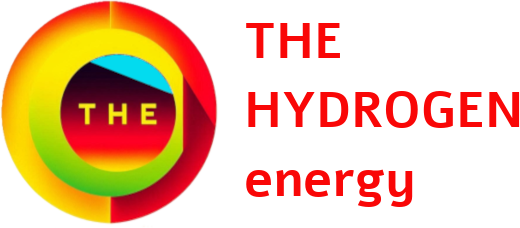Hydrogen is the best Clean Energy Source, Hydrogen though used a fuel, is primarily an Energy Carrier! Is Hydrogen the next climate change silver bullet?
Key Facts that supports hydrogen (h2) as best clean energy source or fuel:
1. Zero Emission, Zero carbon, must for a clean energy source or fuel
Hydrogen reacts or burns in air (with oxygen) releasing heat and water vapor only.
Reaction: 2H2 (g) + O2 (g) → 2H2O + Heat (energy) (ΔH = -285.8 kJ/mol)
This reaction demonstrates that the process releases no carbon-containing products or CO₂ emissions during use and emits no other greenhouse gases (GHGs). This assumes complete combustion or oxidation occurs under normal temperature and pressure (NTP) conditions.
Similarly, in a hydrogen fuel cell, hydrogen produces only electricity, water, and heat when reacting with oxygen. The reaction generates no carbon dioxide (CO₂) or other greenhouse gases.
Thus hydrogen as a clean energy fuel, no harm to environment, good for the climate to sustain. Hence crucial for sustainable energy transition, mitigating climate change and achieving net-zero emission goals.
However in some cases hydrogen combustion can produce dangerously high levels of nitrogen oxide (NOx). Combustion is where hydrogen goes from “emissions-free” to polluting. Internal combustion engines, some industrial processes and turbines operate on hydrogen fuel through combustion process which involves high temperature reaction with air (oxygen, nitrogen).
2. Gravimetric Energy Density
Hydrogen has highest gravimetric energy density (see the table) being the primary reason for considering hydrogen as a strong contender, as an alternative among all types of fuels.
Hydrogen boasts a much higher energy density by weight compared to gasoline. (142 MJ/kg for hydrogen vs. 46 MJ/kg for gasoline). Therefore, 1 kilogram of hydrogen delivers the same energy as approximately 3 kilograms of gasoline.
3.Hydrogen Best Clean Energy Source: Energy carrier
As hydrogen does not exist freely in nature (except natural or geologic hydrogen), is always produced from other sources of energy, thus it is known as an energy carrier. Like electricity, hydrogen is a secondary source of energy. Hence hydrogen is called as an energy carrier, not a primary energy source and can be stored and releases tremendous amount of energy. As it burns or used in fuel cells, it only forms water vapour, no other gas emissions or by products. This makes hydrogen A Clean, Flexible Energy Carrier and a great solution to tackle various critical energy challenges in transition to net zero emissions.
Thus Hydrogen as an energy carrier, can efficiently store for a prolonged time, any amount of generated energy. This is a key, crucial property for considering hydrogen for energy transition and qualifies as clean energy storage fuel. Renewable electricity can be used for hydrogen production through electrolysis and hydrogen produced is stored for reuse when renewable sources are unavailable like no sun shine during night time or no wind velocity on odd seasons.
Thus hydrogen serves as a valuable storage option as energy carrier or energy vector for renewable energy by enabling long-term energy storage, addressing the intermittency of renewable sources.
4.Versatility is important for a clean energy option
Hydrogen is a versatile fuel that can be used in various applications. It can be used in hydrogen fuel cells for electric vehicles, stationary power generation, and even industrial processes like steel, glass, cement, etc., manufacturing.
5. Rapid Refueling
Filling a hydrogen fuel cell or ICE vehicle can be quite fast in minutes, similar to refueling a conventional gasoline car. This is an advantage over battery electric vehicles that typically require longer charging times and thus hydrogen plays a key role in sustainable or decarbonizing transport industry.
6. Abundant Source
Hydrogen is the most abundant element in the universe. While it doesn’t exist in its pure form naturally (except beneath Earth’s surface), it can be produced from water through electrolysis using renewable energy sources like solar or wind power. This creates a potentially sustainable fuel cycle.
Hydrogen’s clean burning nature, high energy density, abundance and potential for energy storage from renewables position it as a crucial player in the transition to a clean energy future. By addressing the challenges and continuing innovation, hydrogen as a clean energy source can unlock its full potential and contribute significantly to achieving net-zero emissions.
This article is Copyright protected







Add comment